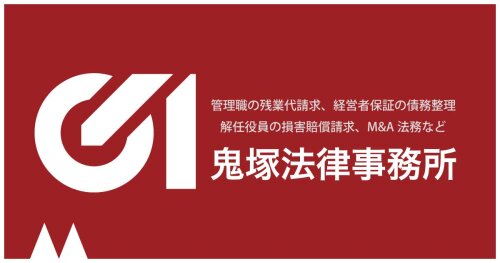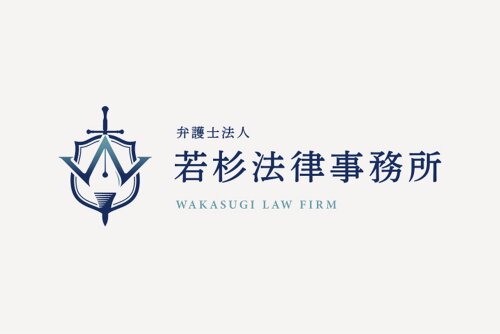Best Bankruptcy & Debt Lawyers in Fukuoka
Share your needs with us, get contacted by law firms.
Free. Takes 2 min.
List of the best lawyers in Fukuoka, Japan
About Bankruptcy & Debt Law in Fukuoka, Japan
Bankruptcy and debt law in Fukuoka, Japan, is governed by national statutes, including the Bankruptcy Act, Civil Rehabilitation Act, and related local court procedures. These laws provide individuals and businesses with structured methods to resolve overwhelming debt, either through asset liquidation or structured repayment plans. The purpose is to help those facing financial hardship obtain relief while ensuring fair treatment for creditors. In Fukuoka, the process is overseen by the Fukuoka District Court, which serves as the primary venue for bankruptcy and related proceedings. Understanding the specific procedures in Fukuoka is important for effectively navigating these legal options.
Why You May Need a Lawyer
Many people in Fukuoka seek out legal assistance in bankruptcy and debt matters for a variety of reasons. You may need a bankruptcy lawyer if you are struggling to pay off personal loans, credit card debt, business loans, or if you have received a court summons for unpaid obligations. A lawyer can help you decide if bankruptcy is the right solution or if alternatives such as debt restructuring or voluntary settlements would be more appropriate. They can guide you through the complicated paperwork, negotiations with creditors, and represent you in court. Legal assistance is particularly critical if you own significant assets, have complex debts, or face creditor harassment.
Local Laws Overview
In Fukuoka, bankruptcy and debt cases follow Japanese national law, but the procedures are administered locally through the Fukuoka District Court. The main routes for debt relief include personal bankruptcy (kojin hasan), civil rehabilitation (minji saisei), and voluntary arrangements (nin-i saiteki kariire). In personal bankruptcy, debts are eliminated through liquidation of non-exempt assets. Civil rehabilitation is often used by individuals with regular income or small businesses, allowing for a structured repayment plan over several years. The court may appoint a trustee to manage assets and communicate with creditors. Specific filing requirements, documentation, and schedules must be followed closely to avoid delays or complications in Fukuoka's courts. Consulting with local professionals who understand these rules is highly recommended.
Frequently Asked Questions
What is the difference between bankruptcy and civil rehabilitation in Japan?
Bankruptcy involves liquidating your assets to pay off creditors and writing off remaining debts. Civil rehabilitation allows individuals and companies with steady income to restructure and repay debts over time while keeping their assets.
Am I eligible to file for bankruptcy in Fukuoka?
Any individual or business in Fukuoka who is unable to meet debt payments as they become due can generally file for bankruptcy, subject to court approval and specific procedural requirements.
Will I lose all my assets if I file for bankruptcy?
Not necessarily. Certain essential assets are exempt from liquidation, such as everyday household goods and tools necessary for your work. The court decides what is exempted according to Japanese law.
How long does the bankruptcy process take?
The timeframe varies by case complexity, but a straightforward personal bankruptcy case in Fukuoka can take several months from filing to discharge of debts.
Can bankruptcy stop creditor harassment?
Yes, once you file for bankruptcy, an automatic stay is enforced. This prevents most creditors from pursuing collection activities during the process.
Is my credit permanently damaged after bankruptcy?
Bankruptcy may remain on your credit history for up to 10 years in Japan, affecting access to new loans. However, with responsible financial behavior, it is possible to recover credit over time.
Can foreigners file for bankruptcy in Fukuoka?
Yes, both Japanese citizens and foreigners residing in Fukuoka can file for bankruptcy or civil rehabilitation in the local court if they meet other requirements.
What documents do I need to prepare for bankruptcy?
You will typically need identification, a detailed statement of assets and liabilities, income statements, bank account information, and a list of creditors. A lawyer can provide a customized checklist.
Can I choose which debts to include in bankruptcy?
No, you must declare all debts and creditors. Selective inclusion is not permitted under Japanese bankruptcy law.
Do I have to appear in court?
Most applicants will appear before the Fukuoka District Court at least once. A lawyer can represent you and explain what to expect during hearings.
Additional Resources
If you need more information about bankruptcy and debt relief, consider reaching out to the following resources in Fukuoka:
- Fukuoka District Court (handles bankruptcy filings and hearings)
- Japan Legal Support Center (Houterasu) - Fukuoka branch (provides free or low-cost legal consultations)
- Fukuoka Bar Association (offers lawyer referrals and resources)
- Consumer Affairs Center Fukuoka (assists with consumer creditor issues)
- Local government offices and community legal centers
Next Steps
If you are considering bankruptcy or need help with debt problems in Fukuoka, start by organizing your financial documents and making a list of all debts and creditors. Seek a consultation with a local bankruptcy lawyer who can explain your options under Japanese law and help you navigate the process. Many organizations offer initial consultations free or at a low cost. Be honest and thorough in your application, follow your lawyer’s advice, and attend all scheduled court appearances. Acting early increases your chances of a positive outcome and can bring peace of mind during a difficult time.
Lawzana helps you find the best lawyers and law firms in Fukuoka through a curated and pre-screened list of qualified legal professionals. Our platform offers rankings and detailed profiles of attorneys and law firms, allowing you to compare based on practice areas, including Bankruptcy & Debt, experience, and client feedback.
Each profile includes a description of the firm's areas of practice, client reviews, team members and partners, year of establishment, spoken languages, office locations, contact information, social media presence, and any published articles or resources. Most firms on our platform speak English and are experienced in both local and international legal matters.
Get a quote from top-rated law firms in Fukuoka, Japan — quickly, securely, and without unnecessary hassle.
Disclaimer:
The information provided on this page is for general informational purposes only and does not constitute legal advice. While we strive to ensure the accuracy and relevance of the content, legal information may change over time, and interpretations of the law can vary. You should always consult with a qualified legal professional for advice specific to your situation.
We disclaim all liability for actions taken or not taken based on the content of this page. If you believe any information is incorrect or outdated, please contact us, and we will review and update it where appropriate.
Browse bankruptcy & debt law firms by service in Fukuoka, Japan
Fukuoka, Japan Attorneys in related practice areas.











